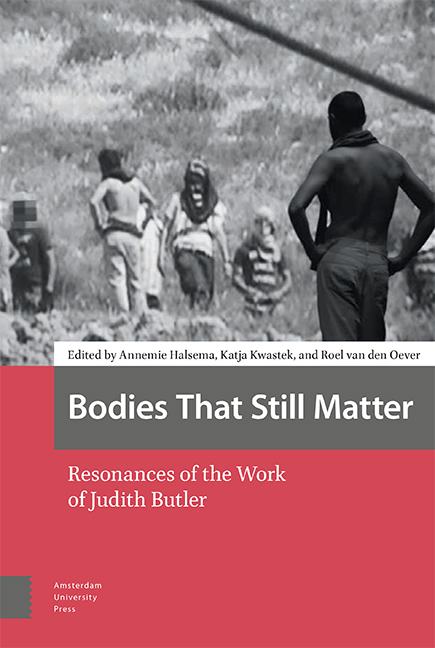Rethinking Radical Democracy with Butler: The Voice of Plurality
Published online by Cambridge University Press: 27 May 2021
Summary
Abstract
In Notes Toward a Performative Theory of Assembly, Judith Butler, by inserting the issue of bodily life and bodily needs into the Arendtian political category of space of appearance, allows us to trace unusual and interesting paths in our exploration of the territory of democracy. This exploration could start from what I call a reimagining of democracy's germinal status. By pondering Butler's claim that the gathering of people in a public space signifies in excess of what is said, this essay focuses on the topic of vocal crowds in order to investigate the difference between plurality and mass. In particular, by revisiting texts by Elias Canetti and Roland Barthes, it explores the soundscape of an embodied plurality uttering words or chanting. Does democracy, at its core, in its germinal status, allow for the voice of plurality to enact a distinctive political performance? Is it possible to speak of a democratic pluriphony?
Keywords: democracy, pluriphony, plurality, crowds, voice
Spaces of Appearance: Political Squares
In his autobiographical novel The Return: Fathers, Sons and the Land in Between (2017), Hisham Matar recounts his 2012 return from London, where he lives and writes, to his native Libya in search of the truth of what happened to his father, a dissident of the Gaddafi regime who was abducted in 1990 and “disappeared” in Libyan jails. Matar meets relatives and friends, among them his cousin Marwan, a judge in Benghazi who describes his personal involvement in the raising of the Arab Spring in Libya. On the night of February 15, 2011, just two days before the beginning of the Libyan revolution, Marwan, together with a dozen or so judges and lawyers, staged a protest against the arrest of Fathi Terbil, a lawyer who had represented the relatives of over a thousand political prisoners killed by the dictator. Marwan and the others stood on the steps of the Benghazi courthouse in the cold winter breeze and did the same the following night, fearing a crackdown. He recalls:
Instead, what emerged through the surrounding dark streets were the families of the deceased, those whose cases Fathi Terbil had taken on. Hundreds of people came, and the following day the number grew into the thousands. On the 17th of February, the date after which the revolution was named, the authorities attacked and killed several demonstrators.
- Type
- Chapter
- Information
- Bodies That Still MatterResonances of the Work of Judith Butler, pp. 141 - 154Publisher: Amsterdam University PressPrint publication year: 2021



